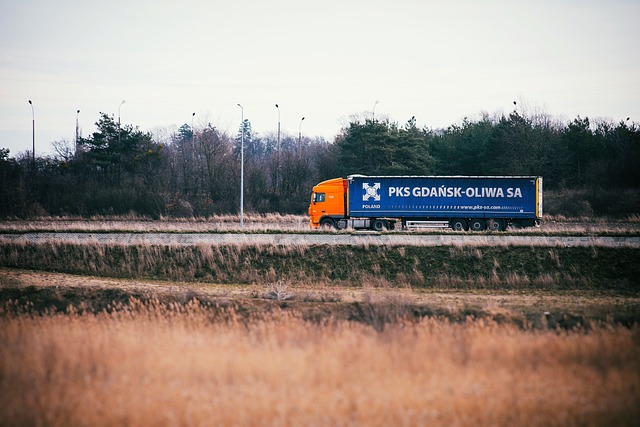Optimizing Policies: Addressing Driver-Related Risks, Including Physical Damage Coverage

Understanding driver-related risks is vital for creating robust policies that protect against liabil…….
Introduction
The realm of trucking is a critical component of the global supply chain, and startups in this sector face unique challenges, among which is the need for robust insurance coverage. “Insurance for Startup Trucking Companies” is not just a legal requirement but a strategic investment that can safeguard against unforeseen events and contribute to long-term stability and growth. This article delves into the intricacies of insurance tailored for startup trucking companies, offering insights into its importance, the types of coverage available, and the broader economic implications. Readers will gain a comprehensive understanding of how insurance can be a vital tool in navigating the complexities of starting and scaling a trucking business.
Understanding Insurance for Startup Trucking Companies
Insurance for startup trucking companies encompasses various types of coverage designed to mitigate financial risks associated with the operation of commercial vehicles. This includes liability insurance, cargo insurance, physical damage insurance, and more. Historically, as the trucking industry evolved, so did the insurance products available to protect it. Today, startups must understand and secure appropriate insurance policies to ensure compliance with regulations and protection against potential losses.
Global Impact and Trends
The influence of insurance for startup trucking companies is felt on a global scale. International trade relies heavily on the transportation sector, making insurance a critical component in maintaining the flow of goods across borders. Key trends include the increasing adoption of technology-driven insurance solutions, such as telematics, which can offer real-time data to underwriters for more accurate risk assessment. Additionally, global events like economic shifts and natural disasters have highlighted the importance of comprehensive insurance coverage for startups in this industry.
Economic Considerations
From a macroeconomic perspective, “Insurance for Startup Trucking Companies” plays a significant role. It contributes to market stability by protecting businesses from catastrophic financial losses. Investment patterns in the trucking and insurance sectors are influenced by risk management strategies, which are, in turn, shaped by the types of insurance coverage available. The economic resilience of startup trucking companies is partly determined by their access to and choice of insurance products.
Technological Advancements
Technology has revolutionized the way insurance is approached for startups in the trucking industry. With advancements such as telematics, insurers can now offer usage-based insurance (UBI) that tailors premiums to actual driving behavior rather than relying on broad demographic or geographic data. The future of insurance will likely see even more sophisticated models incorporating AI and machine learning to predict risks and personalize coverage.
Policy and Regulation
A robust policy and regulatory framework governs “Insurance for Startup Trucking Companies.” Federal and state regulations mandate minimum levels of liability coverage, while additional policies address specific risks like cargo loss or damage. These regulations not only protect startups but also ensure a level playing field within the industry. Compliance with these frameworks is crucial for startups to operate legally and effectively.
Challenges and Criticisms
Startups in the trucking industry face challenges related to insurance, such as high premium costs, complex policy terms, and difficulties in obtaining coverage. Critics argue that the current insurance model can be inflexible and may not adequately address the unique needs of startup trucking companies. Strategies to overcome these issues include advocating for more favorable regulations, leveraging technology to improve risk assessment, and fostering a competitive market environment.
Case Studies
Several case studies illustrate how startups have effectively navigated the insurance landscape. One such example is a startup that partnered with an insurer to develop a usage-based insurance program, which significantly reduced their premiums and improved coverage terms. These success stories provide valuable insights into best practices for securing insurance as a startup in the trucking industry.
Future Prospects
The future of “Insurance for Startup Trucking Companies” is poised for innovation and growth. Emerging trends include the expansion of UBI programs, increased use of data analytics to assess risk, and the potential for parametric insurance products that offer payouts based on predefined triggers. Strategic considerations for startups will involve staying abreast of technological advancements and understanding the evolving regulatory landscape.
Conclusion
This article has explored the multifaceted role of insurance in supporting startup trucking companies. It is clear that insurance is not just a legal requirement but a strategic component that can influence a company’s financial health, operational stability, and overall success. By understanding the types of coverage available, staying informed on global trends, navigating economic considerations, leveraging technological advancements, adhering to policy and regulation, and overcoming challenges through strategic planning, startups can build resilience against risks and position themselves for long-term growth in the competitive trucking industry.
FAQ Section
What types of insurance are essential for a startup trucking company?
A: Essential insurance types include liability coverage, cargo insurance, physical damage insurance, and uninsured/underinsured motorist insurance. Depending on the specific operations, additional coverages like bobtail insurance or on-hookout insurance may also be necessary.
How can a startup trucking company save on insurance costs?
A: Startups can save on insurance by comparing quotes from multiple insurers, participating in usage-based insurance programs, maintaining a good driving record, and implementing safety protocols that reduce the risk of accidents or claims.
What are some emerging technologies in trucking insurance?
A: Emerging technologies include telematics devices, usage-based insurance (UBI), predictive analytics for risk assessment, and blockchain for streamlining claims processing.
How do regulations affect the insurance options available to startup trucking companies?
A: Federal and state regulations mandate specific types of coverage and minimum levels of liability. These regulations also influence the insurance market by setting standards that insurers must adhere to when offering policies.
Can a startup trucking company customize its insurance policy?
A: Yes, startups can often customize their insurance policies by choosing from various coverage options and endorsements to fit their specific needs and risk profile. Working with an experienced insurance agent or broker can help tailor the best possible coverage.

Understanding driver-related risks is vital for creating robust policies that protect against liabil…….

Managing insurance for new trucking businesses is a complex task requiring dynamic solutions. With e…….

As trucking companies grow, managing costs and coverage becomes a complex challenge. Optimizing expe…….

Small fleet operations face unique liability risks that require proactive management. Fleet managers…….

First-time fleet owners face unique challenges insuring their operations, which involve managing mul…….

For new businesses, affordable startup insurance is a crucial tool for protecting limited capital an…….

Insurance startups facing a trust gap with trucking companies must prove reliability through strong…….

Liability insurance, particularly tailored trucking policies, is essential for risk management in th…….

Starting a business in logistics and freight presents unique challenges, particularly protecting car…….

Trucking companies face significant liability risks due to negligence, maintenance issues, and regul…….